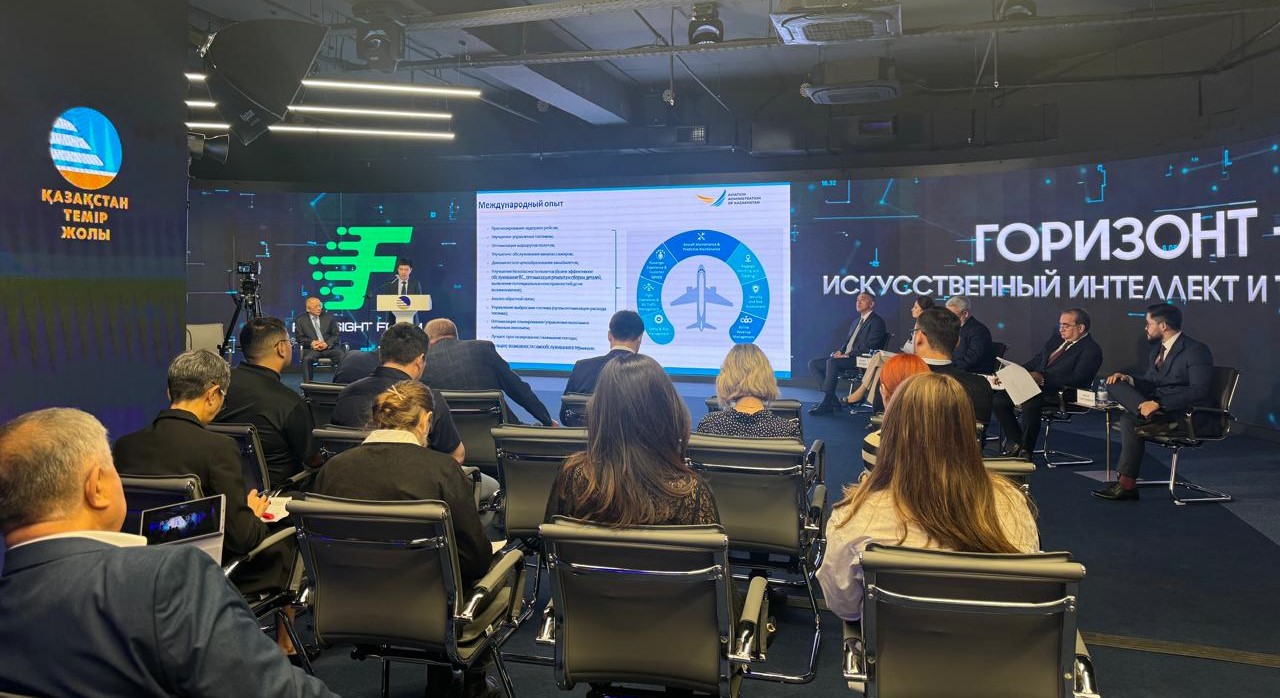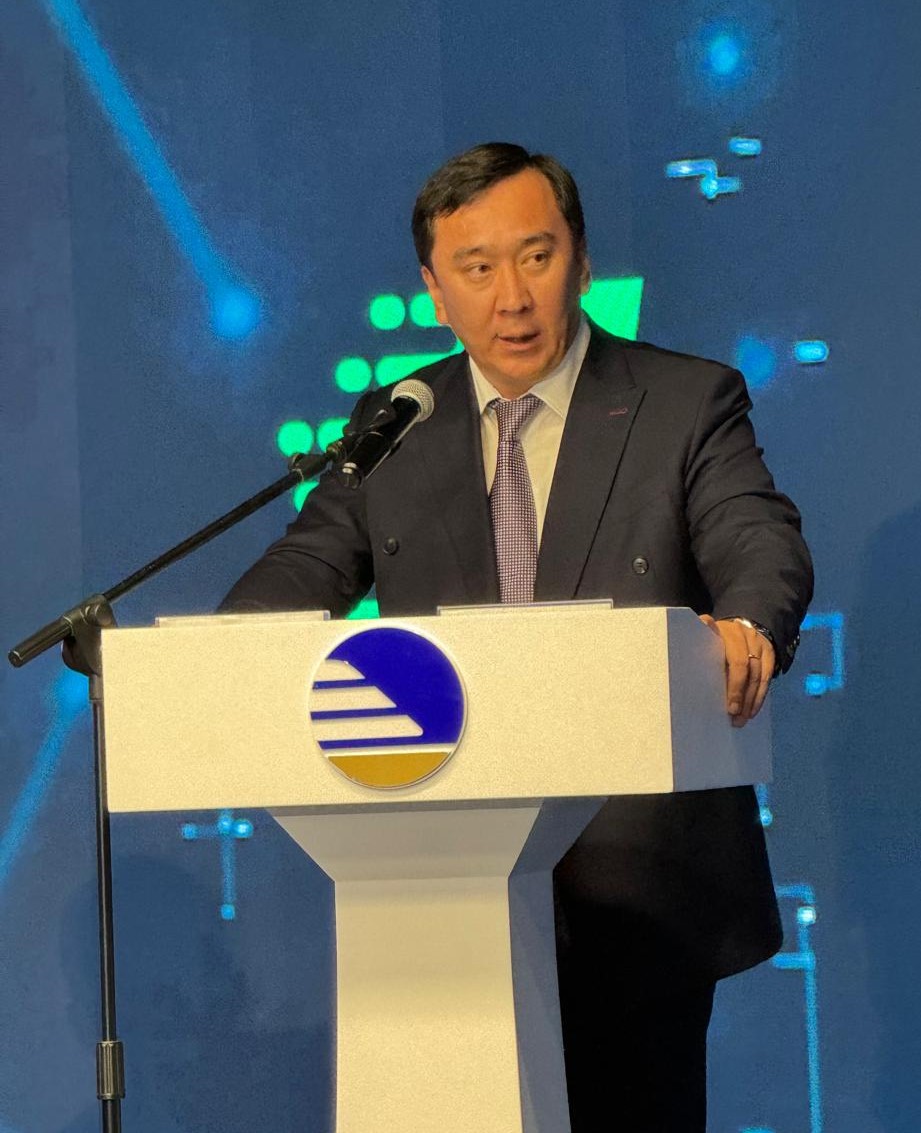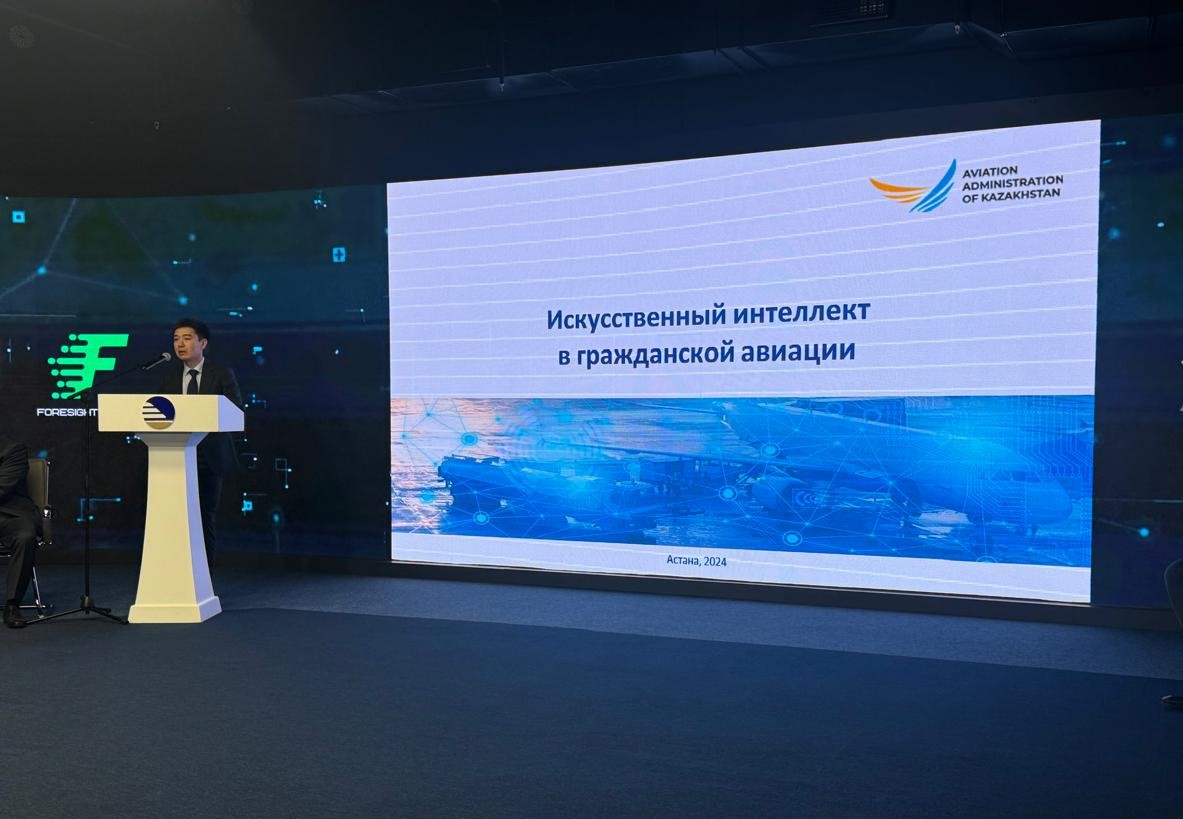08/10/2024





The Foresight Forum “Horizon 2035: Artificial Intelligence and Transport of the Future” took place in Astana. The event was attended by leading experts from the Ministry of Transport of the Republic of Kazakhstan, national companies, and representatives from transport and scientific organizations in Kazakhstan and partner countries.
Maksat Kaliakparov, Vice Minister of Transport of the Republic of Kazakhstan, participated in the strategic session “From the Silk Road to the Digital Transport Route.”
The Forum’s agenda addressed a variety of issues related to the integration of artificial intelligence – spanning from ethics to cybersecurity. Transport-related topics were examined with a future-oriented perspective, leveraging new technologies.
During the expert session titled “Practical Cases of Intelligent Services in Transport,” Zhanat Abdugalimov, Senior Director of the department of the safety management, quality, strategy and compliance department of the Aviation Administration of Kazakhstan, delivered a presentation on “Artificial Intelligence in Civil Aviation.”
The representative from the AAK discussed the application of new technologies in civil aviation, providing examples from global practice. He highlighted how AI offers numerous opportunities in areas such as forecasting flight delays, improving fuel management and emissions control through fuel optimization, and enhancing flight safety (including more efficient aircraft maintenance, passenger services, flight route optimization, repair and assembly of parts, and the optimization of pilot and cabin crew planning/management). AI also enables improvements in weather forecasting and terminal self-service systems.
“AI helps predict flight delays for airlines and airports, facilitating more efficient communication with passengers, such as sending SMS notifications via messaging apps and email in advance. Modern air traffic management systems allow airlines and air transport companies to set optimal flight routes. Route optimization is also supported by ICAO initiatives, which are being implemented as part of the global air navigation plan. With the introduction of the Free Route Airspace Concept, airlines and air navigation providers can build more optimal routes, positively impacting not only flight operations but also the environment,” said Zhanat Abdugalimov.
He also noted that the regulation of AI in civil aviation is one of the most pressing issues. This topic is actively discussed at ICAO Assemblies, where industry stakeholders are proposing the development of standards and recommended practices for AI in civil aviation, as well as focused training for future experts in the field.
One of the best practices for AI regulation is the European Aviation Safety Agency (EASA), which released the second version of its 2020 Roadmap. This document covers all areas of the civil aviation industry and outlines the regulatory future of AI applications in civil aviation.









